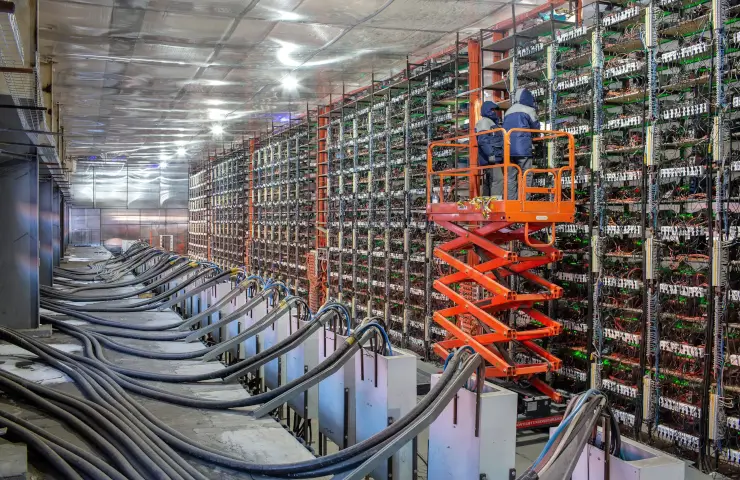Rising energy prices have given Sweden a choice: supply electricity for job-creating projects such as steel mills, or allocate more power to bitcoin miners, which are increasingly power hungry.
According to the Minister of Energy of Sweden Hashajar Farmanbar, the government of the country is inclined to support metallurgists in this competition.
His comments suggest that Sweden, home to Europe's largest bitcoin mining industry, may become less hospitable for business. The government is so concerned about the use of electricity to produce virtual currencies that it asked the Swedish Energy Agency late last month to come up with ways to track how much energy is being used for digital infrastructure, with a particular focus on cryptocurrency mining.
A government review raises concerns that life will become harder for crypto miners flocking to Sweden, where huge hydro and wind farms provide some of the cleanest and cheapest electricity in the world.
While Farmanbar declined to say what measures he could take to curb mining, one of the options being discussed could include changing the order in which new power users access the network to those that bring tangible benefits to society, including creating more workers places were preferred.
Another alternative would be to limit the preferential tax treatment that currently applies to all data centers, regardless of their use. Such incentives were never intended in principle to attract crypto miners, but rather were aimed at multinational corporations such as Microsoft Corp. and Facebook Meta Platform Inc.
The Swedish financial regulator has previously called crypto assets a threat to climate change and called for a European Union-wide ban on mining, enlisting the support of lawmakers in countries from Germany to Spain and Norway. China recently banned cryptocurrencies altogether.
Growing demand for electricity
The energy crisis and the electrification of everything from transportation to mining, as well as new green steel and battery plants, mean competition for electricity and grid connectivity is fiercer than ever. Energy consumption in Sweden will double in the next few decades.
According to the European Central Bank, bitcoin mining consumes enough electricity to power a medium-sized country like Spain or the Netherlands. The size of the industry in Sweden is difficult to estimate as there is no publicly available data on how many miners work there or how much energy they use.
SSAB, which plans to produce fossil-free steel, said network operators should prioritize industrial projects like its own, rather than connecting users on a first-come, first-served basis, as they do now.




